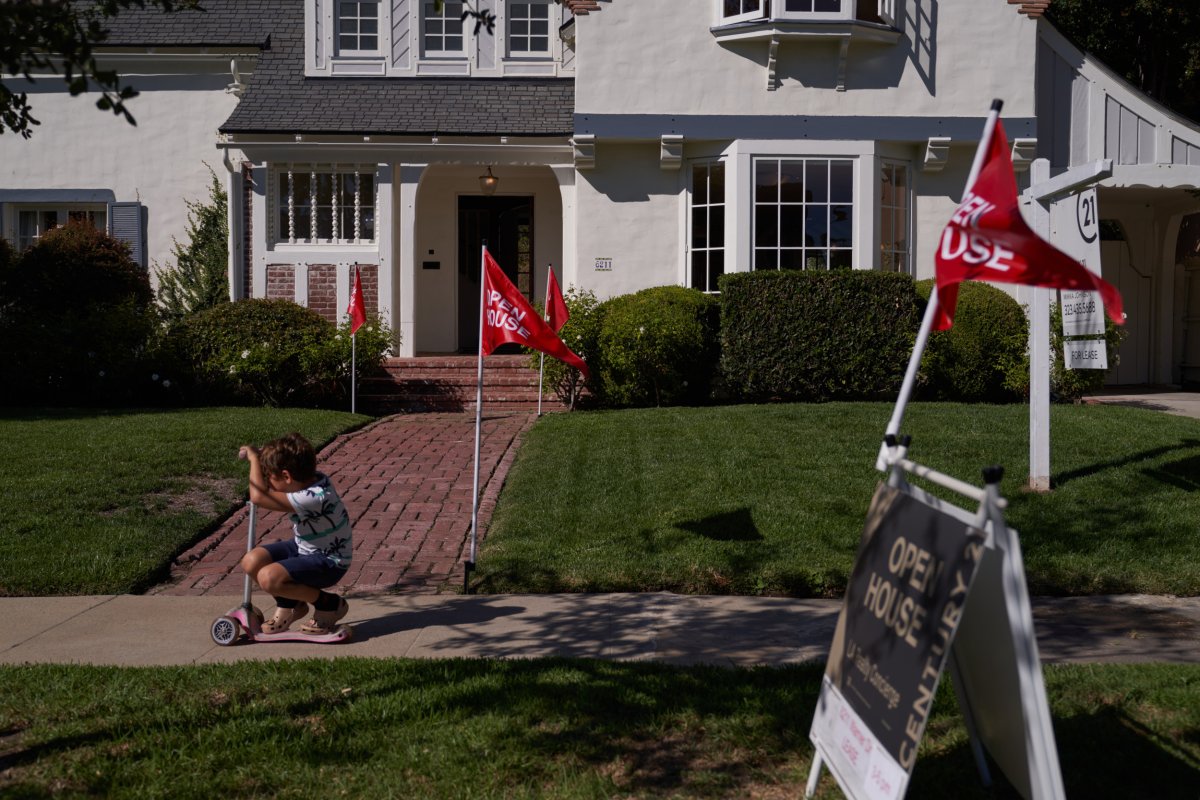US Housing Market To Be Upended This Summer: What To Know – Newsweek
The U.S. housing market is potentially facing the biggest overhaul in years this summer, as the powerful National Association of Realtors settles an antitrust lawsuit that could change the way real estate agents are compensated.
The NAR, which counts over 1.5 million members across the country, agreed to pay hundreds of millions of dollars in March to settle cases brought against it over commissions that claimants said overburdened sellers with unnecessary costs.

Buy/sell, rent/lease residential &
commercials real estate properties.
Read more: What the NAR Legal Settlement Means for Homebuyers and Sellers
Though NAR denied any wrongdoing, it agreed to pay $418 million over the next four years to end the cases. Final court approval of the settlement will not occur until late September, and before then, the Department of Justice may intervene to request modifications to this settlement.
But NAR’s promised changes—including reforming the way agents charge for home sale transactions, instituting requirements of written agreements with buyers to provide more transparency through the housing sale process when it comes to fees, and allowing buyers to negotiate compensation independently—are planned to come into effect in July.

A child rides a scooter past ‘open house’ flags displayed outside a single-family home on September 22, 2022, in Los Angeles, California. Changes to how real estate agents are compensated are expected to come into effect in July, potentially upending the U.S. housing market.
Allison Dinner/Getty Images
“It has always been our goal to preserve consumer choice and protect our members to the greatest extent possible. This settlement achieves both of those goals,” Nykia Wright, interim CEO of NAR, previously said in a statement shared with Newsweek.
The changes might finally remove the typical 6 percent fee that agents secure when they facilitate the sale of a home—nothing short of a revolution in the U.S. housing market. But experts warn it may take time for the consequences of the settlement to fully play out.
Norm Miller, a professor emeritus of real estate at the University of San Diego, believes that most firms will wait until July to eliminate the seller agency commission-sharing arrangement. He also thinks that the expected subversive impact of the settlement on the U.S. housing market might be contained.
“At first I thought we would see a slew of firms trying to compete for buyer representation based on new models and new fees, with a menu of services. But based on the subscriptions I have from training firms and larger brokerage houses, I now see that the industry will try, for as long as possible, to maintain the status quo,” he told Newsweek.
“There are breakaway firms with lower fees on the seller side, but this has been true for many years,” he said.
Read more: How to Sell Your Home
Steve Brobeck, a senior fellow at the Consumer Federation of America (CFA), said that his association expects that the changes caused by the settlement will be gradual and eventually lower consumer costs.
What’s Going To Change?
Brobeck thinks that two changes are likely to occur in mid-August affecting both home buyers and realtors.
“Before any showing, buyer agents will be required to obtain the signature of a buyer on the home purchase agreement. And sellers will no longer be required to offer compensation to buyer agents in order for their own agent to list their property on the local MLS [multiple listing service],” he told Newsweek.
Both changes will, for the first time, give buyers a real opportunity to discuss and negotiate the compensation of their agent, Brobeck said.
“Given the relatively high current commission rates of 5-6 percent, we expect them to decline to an average of 3-4 percent with much greater variation reflecting the competence of agents and the amount of work they perform. That decline would reduce annual commissions paid by tens of billions of dollars.
The changes will also mean that some buyers will have to compensate their agents.
“If they have a competent agent, this expense will be offset by a decline in the home purchase price since there is wide agreement that buyer agent commissions are currently baked into this price,” Brobeck said. “However, at least initially, almost all buyers will find that sellers are still willing to cover this expense. In their purchase offers, many buyers will request compensation for their agent.”
According to Miller, most agents will be asking their buyers to include a contract request for seller credits of the fee, and this might allow some financing of the fees, as long as other seller credits are not in excess of the lender limits. This is instead of getting paid via a deduction from the seller’s agent commission.
The University of San Diego professor said that it’s clear that some lenders do not want to finance buyer fees, and some will push back against these seller credits. But he suspects “that will mean chasing buyers away who will seek out other lenders,” he said.
Read more: What Is a Mortgage? Types & How They Work
What Will Be the Impact on Homeowners?
“Some buyers will bridle at the expense and contact the listing agent,” Brobeck said. “Today, these agents who work with both seller and buyer typically retain the entire 5-6 percent commission. In the new marketplace, they will have difficulty doing so,” he said.
In the new landscape, buyers could end up as customers (with no representation) or clients (with dual agency or buyer brokerage). In either case, Brobeck said, “they will rarely be willing to pay more than one percent, and the listing agent (a double-dipper) will have great difficulty persuading the buyer to provide more than the 2.5-3 percent in their listing agreement.”
Different buyers will be affected differently.
“About four-fifths of purchasers today already own a home, and most have accumulated home equity that will completely or significantly cover the costs of their new home,” Brobeck said.
“If they use the same agent to both sell one property and purchase a new one, they will have opportunities to substantially lower their commission—from the current 5-6 percent (2.5-3 percent on each sale) to 3-4 percent or perhaps lower,” he explained.
First-time buyers will have a harder time. “They face relatively high home prices and mortgage rates with a restricted supply of desirable homes for sale in most areas,” Brobeck said.
“Some will receive help from parents or grandparents that help them cover all costs including those at closing. But those with limited resources may face difficulty coming up with cash to cover closing costs that include buyer agent compensation,” he said.
“We expect that, driven by the need to make sales to collect commissions, buyer agents will ask sellers for help here and listing agents will persuade sellers to provide it. Most buyer agents are also listing agents in other sales.”
Miller told Newsweek that, in the short run, buyers who cannot finance fees will need to come up with more cash aside from a downpayment.
“Buyers representing themselves can be risky, unless they are experienced buyers. Eventually, we will see some firms offering a menu of services and new, lower fees in order to attract buyer business, and this will trigger a new wave of business models and services,” he said. “We may also see some law firms get involved in buyer representation, mostly drafting contracts and helping with negotiation. Either one of these scenarios should prompt real estate brokerage firms to rethink how they add value,” Miller said.
“When fees are lowered, we will lose half or more of the existing agents who only do a few transactions a year anyway. This means the true professionals will do more volume and that will make up for the lower fees.”
In the short run, Miller believes that we will see more sellers asking for lower commissions, especially for higher-priced homes, “and this will help make the housing market a slight touch more liquid and affordable,” he said. “But I don’t see much benefit for the lower third of the price range, as the fees will drop less and the added upfront costs will be a negative for aspiring home buyers.”
What Will Be the Impact on Home Prices?
In the long run, there will be some price moderation with lower fees, Miller said—adding that aspiring homebuyers shouldn’t hold their breath for it.
“It will take so long and be so slow that no one will notice,” he said. “If we dropped fees similar to those paid in the U.K., Singapore or Israel, (closer to 2 percent), that would bring prices down a touch, but our real estate industry will try to maintain the status quo and resist lower fees for as long as possible,” he said.
“Again, the trigger is when you start to see ads on TV of real estate brokerage firms offering to compete on price and a menu of services, and that has not happened yet.”
For Brobeck, lower commissions won’t translate into reduced housing prices, “but it will certainly reduce consumer costs,” he said.
Uncommon Knowledge
Newsweek is committed to challenging conventional wisdom and finding connections in the search for common ground.
Newsweek is committed to challenging conventional wisdom and finding connections in the search for common ground.



